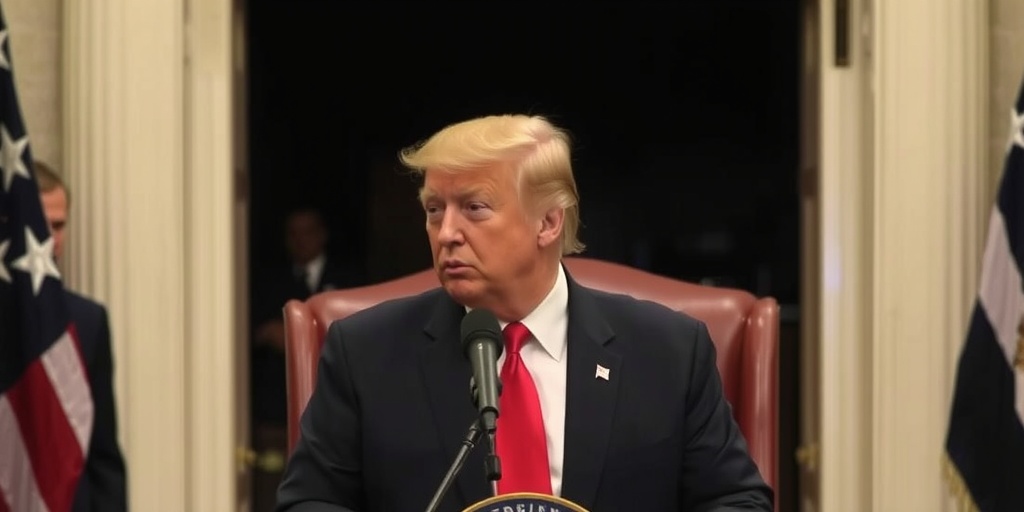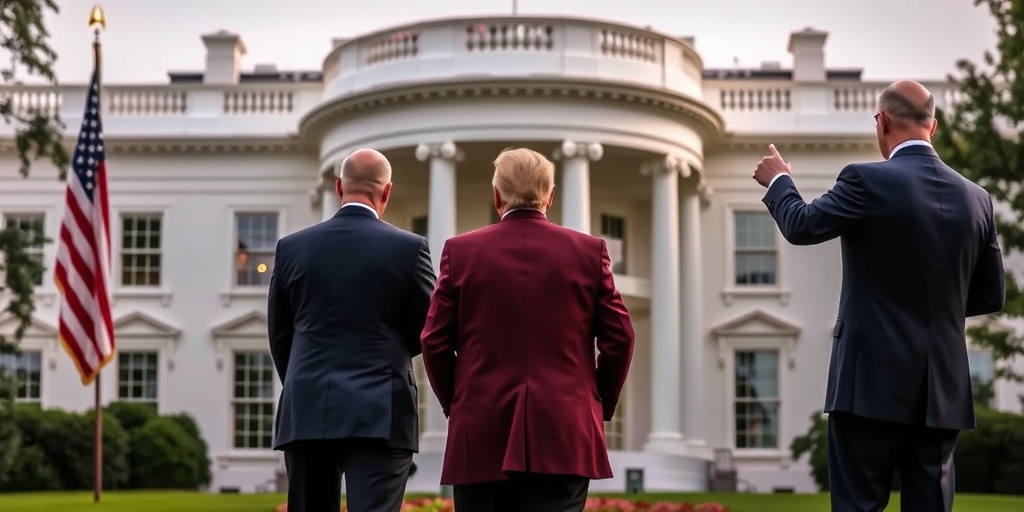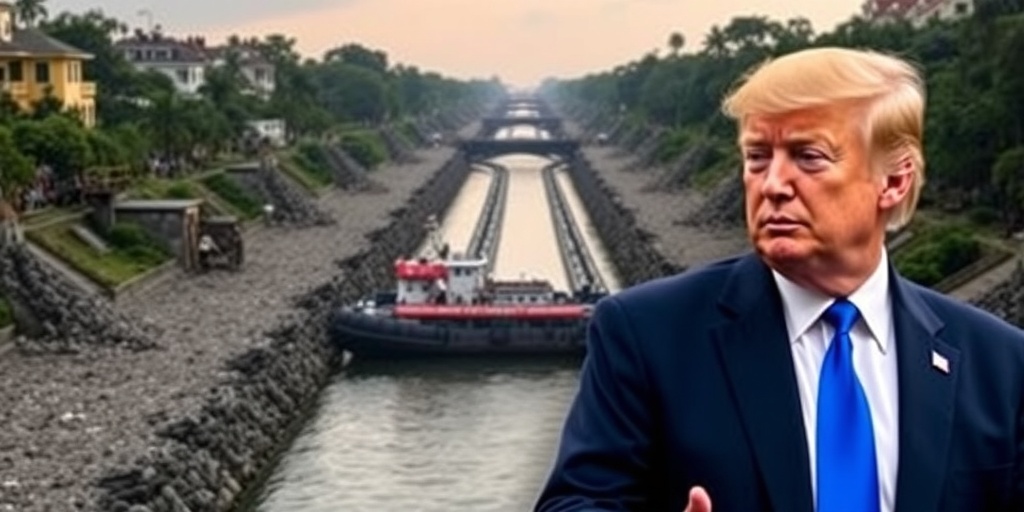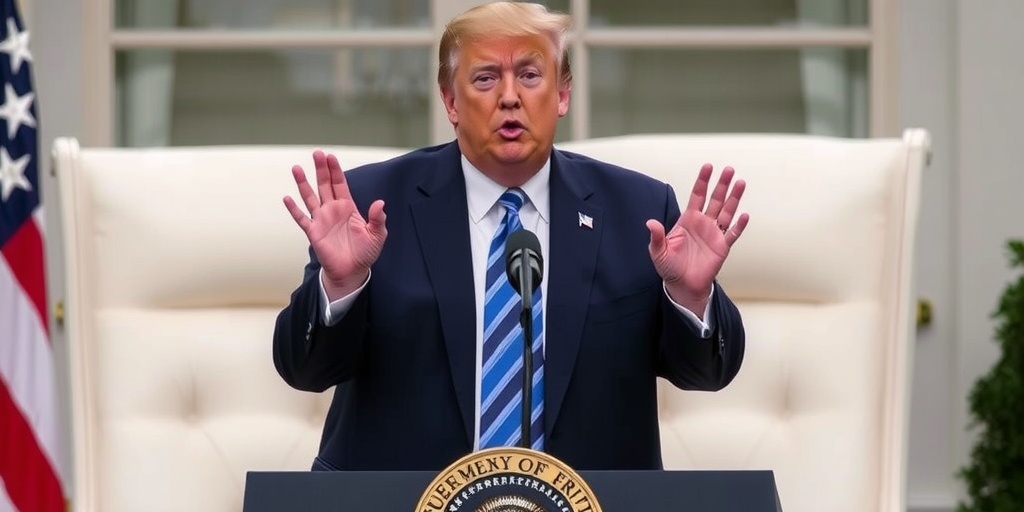Now Reading: Greenland PM: U.S. Won’t ‘Get’ the Island
-
01
Greenland PM: U.S. Won’t ‘Get’ the Island
Greenland PM: U.S. Won’t ‘Get’ the Island

Title: Greenland’s New Prime Minister Challenges Trump’s Annexation Claims
In a bold response to recent statements made by President Donald Trump, Greenland’s newly sworn-in Prime Minister Jens-Frederik Nielsen unequivocally stated that Greenland will not be annexed by the United States. This declaration comes amid Trump’s remarks, where he expressed a strong interest in claiming the Arctic island as part of the U.S., further igniting a heated debate over Greenland’s future.
During his inaugural address on social media, Prime Minister Nielsen stated, "President Trump says that the United States ‘will get Greenland.’ Let me be clear: The United States will not get it. We do not belong to anyone else. We decide our own future.” His comments reflect a firm stance on Greenland’s sovereignty, asserting that the island’s fate is in the hands of its own people, not influenced by external forces.
The controversy began when Trump, in an interview with NBC News, stated confidently, "We’ll get Greenland. Yeah, 100 percent." He also claimed that he has engaged in serious discussions about the possibility of annexing the island, which has been a semi-autonomous territory of Denmark for over three centuries. Trump went on to say that there exists a "good possibility that we could do it without military force," yet simultaneously left every option on the table by not discounting the use of military intervention.
The implications of Trump’s comments suggest a broader agenda during his second term, with his administration demonstrating an expansionist mindset. His remarks about Greenland have surfaced alongside other controversial assertions regarding the potential annexation of regions including Canada and the Panama Canal—demonstrating a strikingly aggressive approach to foreign policy that appears to challenge the norms of international diplomacy.
Prime Minister Nielsen’s inaugural address comes at a time of heightened sensitivity regarding U.S.-Greenland relations, particularly as the island’s political leaders perceive the American government’s engagement as increasingly threatening. Compounding the diplomatic strain, the American delegation led by Vice President JD Vance arrived on the island on the same day Nielsen was sworn in. This timing raised eyebrows, with officials lamenting the visit as an unwelcome escalation of tensions, especially just after Greenland underwent parliamentary elections.
While Vance adopted a more conciliatory tone than Trump during his visit, emphasizing that the United States respects Greenland’s right to self-determination and asserting that military action would not be necessary, the reception was less than warm. Nielsen’s predecessor, Mute B. Egede, expressed frustration over the American delegation’s uninvited arrival and the initial plans for the trip, leading to a swift amendment of their itinerary after public backlash.
The U.S. delegation’s plans faced considerable pushback from the local population, with organizers of an anticipated dog-sledding race publicly stating that they had not invited Vice President Vance’s wife to attend the event. Statements from Greenlandic officials further underscored their discontent, with Egede announcing, “there will be no meetings between American and Greenlandic officials,” indicative of the island’s reluctance to engage with U.S. representatives under such contentious circumstances.
As part of this turbulent backdrop, protests were slated to occur in Nuuk, the capital of Greenland, that coincided with Vance’s original itinerary. In light of the political climate and the reception of the American delegation, these demonstrations reflected the growing dissent among Greenlanders regarding perceived threats to their autonomy.
This unfolding situation presents a complex web of international relations, resonating with themes of sovereignty, self-determination, and the potential for conflict over territorial claims in an era marked by global power shifts. For the Greenlandic people, the stakes are profoundly personal; their future, as articulated by Prime Minister Jens-Frederik Nielsen, will be determined by their own governance and choices, free from the whims of foreign powers.
As discussions about the island’s status continue, it remains imperative for global leaders to engage in respectful dialogues, acknowledging the rights of indigenous populations and fostering international relationships based on mutual respect and understanding rather than coercion. As this situation develops, the world will be watching to see how it impacts the geopolitics of the Arctic and beyond.
Stay Informed With the Latest & Most Important News
Previous Post
Next Post
-
 01New technology breakthrough has everyone talking right now
01New technology breakthrough has everyone talking right now -
 02Unbelievable life hack everyone needs to try today
02Unbelievable life hack everyone needs to try today -
 03Fascinating discovery found buried deep beneath the ocean
03Fascinating discovery found buried deep beneath the ocean -
 04Man invents genius device that solves everyday problems
04Man invents genius device that solves everyday problems -
 05Shocking discovery that changes what we know forever
05Shocking discovery that changes what we know forever -
 06Internet goes wild over celebrity’s unexpected fashion choice
06Internet goes wild over celebrity’s unexpected fashion choice -
 07Rare animal sighting stuns scientists and wildlife lovers
07Rare animal sighting stuns scientists and wildlife lovers





















